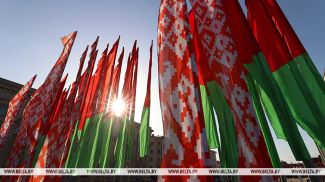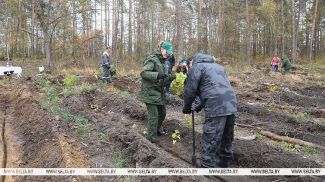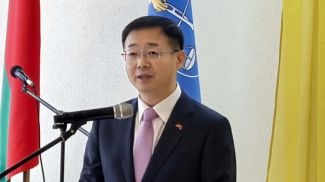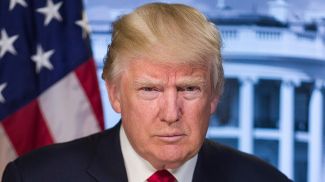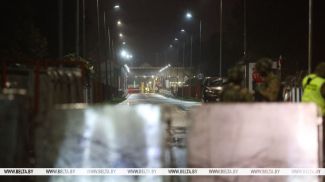
MINSK, 31 August (BelTA) – The migration crisis at the borders of Belarus and neighboring countries of the European Union may seem unexpected. But if we look at recent history, we may see that the situation had been in the making for years. In the new episode of BelTA’s YouTube project “How it was” we will tell you how back in 2003 the Belarus president warned Germany about consequences of uncontrolled migration. And how he tried to resolve a fuel conflict between Minsk and Moscow and stop turbulence in Belarusian agriculture.
Let’s start with an urgent problem. The migration crisis at Belarus’ borders with Poland, Lithuania, and Latvia has been raging for three years now. The European Union blames Minsk all the time and accuses Aleksandr Lukashenko of hybrid warfare. But the thing is that back in 2003 the Belarus president mentioned the possibility of this scenario in an interview with the German publication Der Spiegel. Berlin did not listen to the Belarusian leader.
“You’ve said that you may open western borders and Lithuania, Latvia, Estonia, and Poland may be flooded with refugees,” the reporter said.
“Do you believe that Belarus needs no money? That we’ve been doing it for 10 years and will continue filtering out illegals here at our own expense? That we will keep them in Belarus’ territory so that they wouldn’t make problems for you? A huge number of people come from Afghanistan, Pakistan. They don’t go to Belarus after all. We can easily accommodate those, who come to us. There are plenty of them, too. I’ve already contacted Germany. If primarily Germany wants us to continue acting as a reliable filter…” the head of state told the German reporter.
“What was Germany’s response?” the reporter wondered.
“No response at all!” the president answered.
The reporter suggested that the situation should be resolved together with the countries from which the refugees came to Europe. “You should do it, please. You’ve bombed Afghanistan. Please, sort things out over there. Including an increase in drug trafficking. And the number of people has increased by 3-5 times in comparison with the prewar situation,” Aleksandr Lukashenko suggested as a way out.
By the way, there were debates and contradictions in relations with our closest ally. Fuel was the stumbling block. During negotiations with the head of Gazprom Aleksandr Lukashenko tried to resolve the problem of natural gas deliveries. It is hard to imagine it now but slightly more than 20 years ago people in apartments, hospitals, schools, and universities looked forward to heating being turned on as a festive occasion. The head of state spent long years to resolve the problem until Minsk and Moscow agreed a normal pricing practice.


Things were not smooth in agriculture either. And agriculture is an economic branch that is close to being the engine of the national economy now. Efforts were poured into bolstering state-run agricultural enterprises. The words “collective farm” were phased out gradually. One of the key problems of agriculture was the mismanagement on the part of individual executives. Fields were strewn with stones, wires, and rods. The executives had to work harder and get accustomed to iron discipline.



These and many other milestone events and decisions of the year 2003 are covered by the new episode of our YouTube project “How it was”.





